
Recent Reviews by Rahul Desai
The Hollywood Reporter India
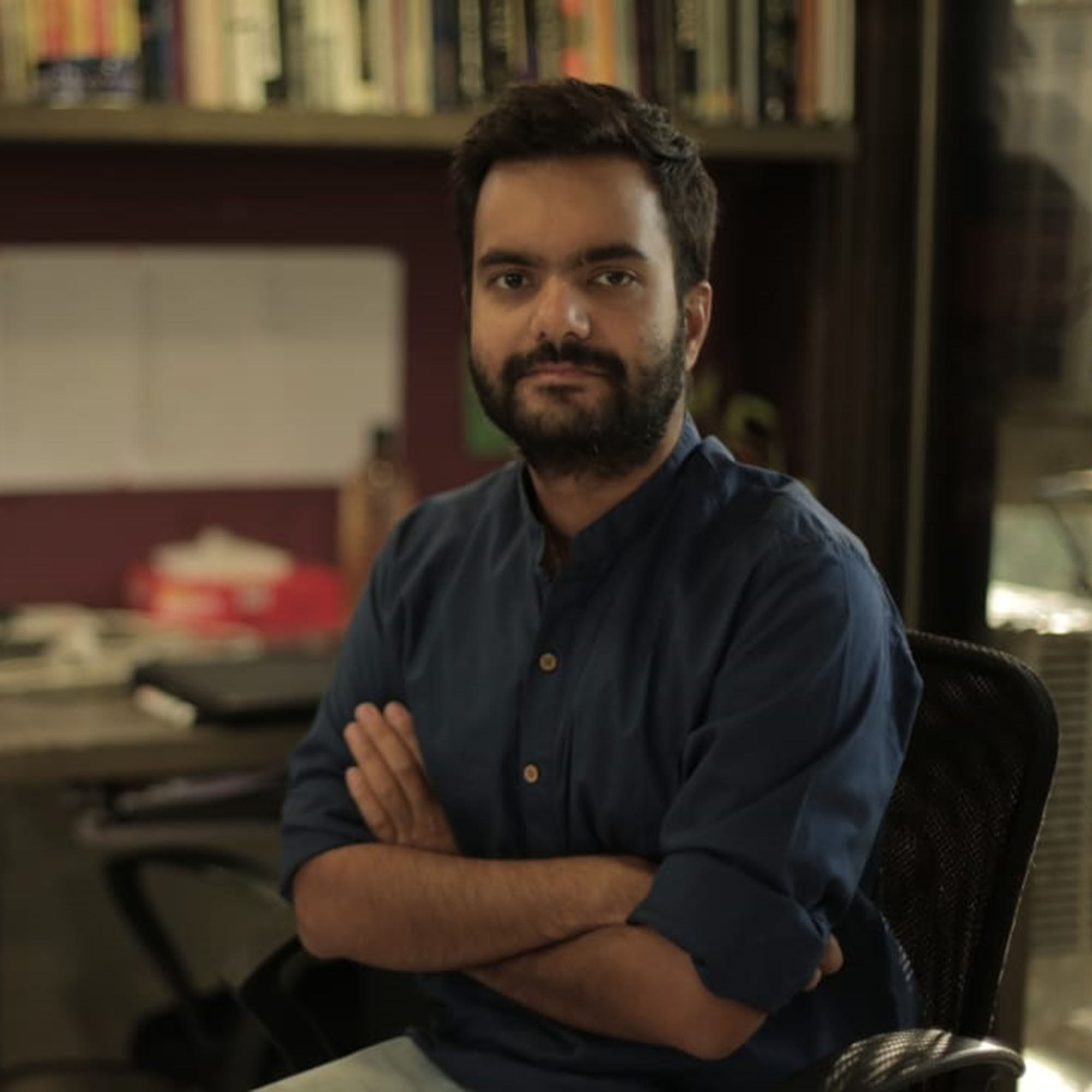
A film critic and columnist, Rahul Desai writes for The Hollywood Reporter India and OTTPlay. In his spare time, he runs a weekly movie podcast called IIF.
Films reviewed on this Page
A Real Pain
Emergency
Paatal Lok S02
Azaad
The Roshans
Fateh
Badminton
The Pickle Factory
Doctors
Baby John
A Real Pain (written for OTT Play)

The Art, & Heart, Of Suffering
Jesse Eisenberg’s film, featuring a great Kieran Culkin performance, lives in the nuances of depression.
A Real Pain, starring Eisenberg and Kieran Culkin as cousins, is exactly the kind of film you imagine if Eisenberg and Culkin played cousins. It’s funny, awkward, edgy, poignant, light, chatty, alert, minor-key and Sundancey (an adjective for the brand of tragicomic American quirk that the snowy festival loves to showcase). There are echoes of the uptight mom and no-filter teen from the actor’s directorial debut, When You Finish Saving The World, in the uptight David (Eisenberg) and the free-spirited-but-troubled Benji (Culkin). Family man David and drifter Benji head to Poland to process their Jewish heritage through a guided Holocaust tour and, more importantly, visit their late camp-survivor grandmother’s childhood home. As in most movies, it’s the interiority of the oddball journey that matters.
All 4 reviews of A Real Pain here
Emergency
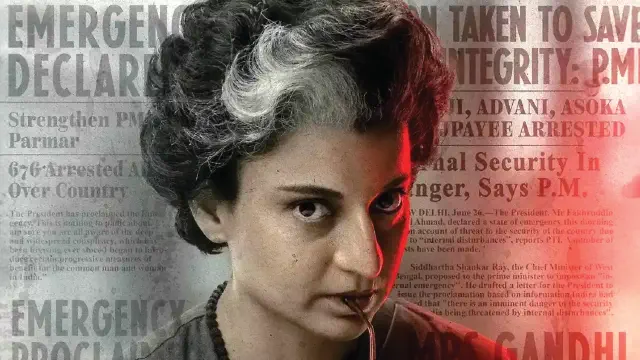
Kangana Ranaut Places the Hindi Historical Under Curfew
The 147-minute Indira Gandhi biopic is all irony and no self-awareness
In Emergency, Kangana Ranaut plays Indira Gandhi who plays Kangana Ranaut. Let me explain. Ranaut performs as the former Prime Minister of India when the politician is flawed, cruel, paranoid, a nepotism hire, power-hungry, guilty, and the mother of Sanjay Gandhi. Her voice becomes high-pitched, uneven and shaky in these parts. But Indira Gandhi seems to perform as Ranaut when the woman is defiant, patriotic, headstrong, resilient, reverential towards the opposition (Janata Party leaders Jayaprakash Narayan and Atal Bihari Vajpayee), and the mother of the nation. Her voice becomes firm, furious and confident in these parts.
All 8 reviews of Emergency here
Paatal Lok S02
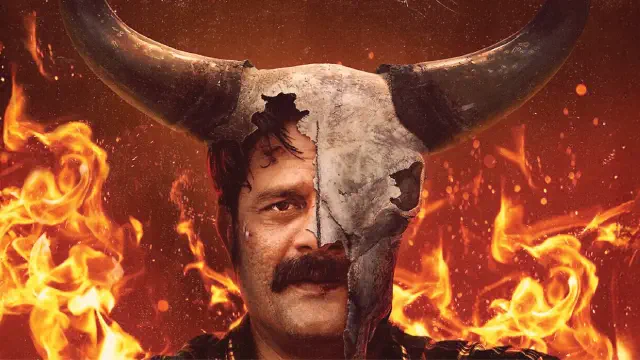
A World-Class Sequel Well Worth the Wait
Jaideep Ahlawat leads a series that trades instant gratification for a slow-burning cultural audit.
A beloved political leader from Nagaland is found brutally murdered in Delhi. The timing is dubious. It’s on the eve of a landmark business summit between the ‘mainland’ and the ‘margins’: The central government is primed to invest thousands of crores into the development and tourism sector of Nagaland. Protests break out in Kohima; conflicts erupt between the slain man’s loyalists and the rebel factions against this soul-selling deal. The case is given to ACP Imran Ansari (Ishwak Singh), fresh from topping his IPS batch. The optics are irresistible: A Muslim officer must lead an investigation into the killing of an unprotected guest — an Indian outsider — in the capital. If things go wrong, Ansari is a readymade scapegoat. Meanwhile, jaded protagonist and Ansari’s ex-boss Hathi Ram Chaudhary (Jaideep Ahlawat) continues to bat in the minor league. He flirts with the idea of quitting, but an inconspicuous case of a missing husband puts him on a collision course with the high-profile investigation. Most officers are expected to do their job, but Hathi Ram is destined to do his duty.
All 8 reviews of Paatal Lok S02 here
Azaad
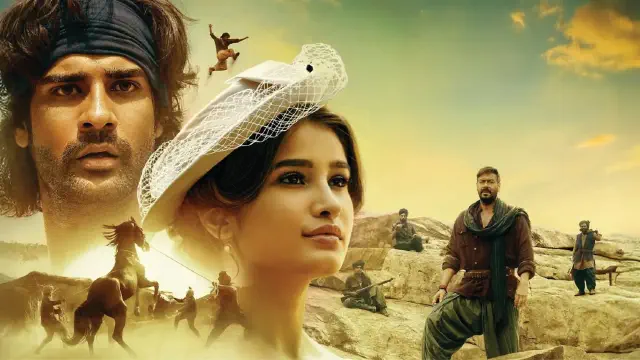
Dear Bollywood, Stop Horsing Around
Abhishek Kapoor’s period actioner is a dull and broken spectacle
Azaad is fit, handsome, muscular and agile. His flowy hair is the talk of the town. He plays hard to get. He looks away and sighs if he isn’t interested. He loves his whisky neat — and straight from the bottle. He sits on a bed when he’s tired. He loses his appetite when he’s sad; he eats only if his food is spiked with alcohol. He has expensive taste. He farts in a closed room. He isn’t afraid to defy outdated perceptions of masculinity: his eyes go glassy when he gets a whiff of his late companion’s scent from a turban. He remembers the day they met and necked. He remembers their adolescent-love song together: “Ab jeene ki koi wajah toh hai” (I now have a reason to live). He isn’t ashamed of weeping. He likes dancing. He loves racing, too. Azaad is an expressive action hero; this film is his big-budget launch vehicle. There’s only one problem though: Azaad is a horse.
All 8 reviews of Azaad here
The Roshans

When Nonfiction Behaves Like Fiction
The Netflix docu-series on the Roshan family is equal parts hollow and comforting.
You’ve heard of “Prestige TV”: the term for quality long-form film-making, cinematic production values, A-list acting and complex screenwriting. But in the Netflix non-fiction universe, Prestige TV is a far more literal term. It stands for self-produced and self-congratulatory celebrity documentaries with infinite access that explore the sanitised prestige of fame. The symptoms: prestigious movie and music legacies, prestigious anecdotes, prestigious lives, prestigious prestige. You get the gist. Or maybe you didn’t. Think of the line from Christopher Nolan’s The Prestige (2006): “Making something disappear isn’t enough, you have to bring it back”. This hagiographic genre is all about bringing things back. Some call it the magic of movies, others call it a nostalgia grab.
All 3 reviews of The Roshans here
Fateh
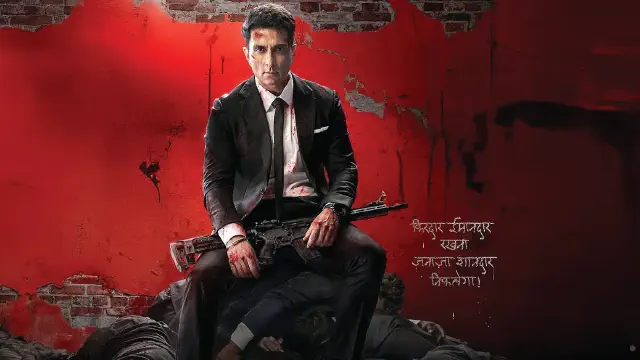
Sonu Sood Directs And Stars In A Not-So-Bad Actioner
Sonu Sood's directorial debut is dotted with inspired action sequences and clumsy writing
You can tell when someone—especially an actor—is directing their first action movie. The craft is more impressive than expressive. Sonu Sood’s Fateh, starring himself, has telltale signs. For instance, there’s that ambitious mirror shot in the beginning: The hero looks straight at his reflection but you can’t see the camera; it then floats through the glass like a ghost. There are the over-excited transitions and snazzy editing. At least twice, shots of spilled blood cut to ketchup on a plate; a cop ordering a steamed momo cuts to a villain eating a momo (“my long-time weakness”); a victim opens his mouth to scream and you hear a honking car. There’s an interval slate that reads “Brace yourself, you’ll need this break”. A pointless overseas sequence is inserted only so that a Hans Zimmer-composed track can be flaunted. A random close-up of a henchman’s ear is seen seconds before his severed ear is served on a plate.
All 6 reviews of Fateh here
Badminton
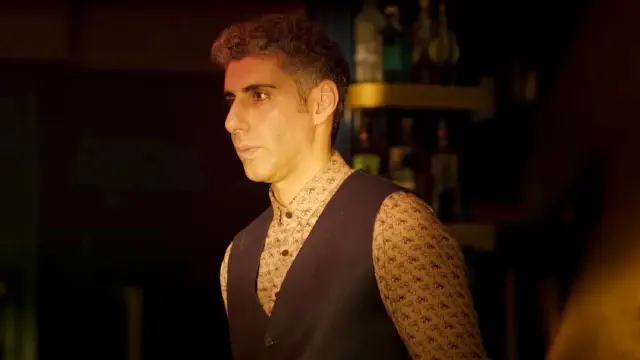
Dibakar Banerjee Aims, But Misses the Mark
The 11-minute satire starring Jim Sarbh and Vijay Maurya is too staged for its own good—its burning desire to be witty dominates the the core purpose of the film
Given the times we live in, it’s a source of constant intrigue that Hindi cinema’s politically aware film-makers have to be smart about expressing themselves. They have to be subtler and sneakier with their views, but also stay just as accessible. You see a push-and-pull balance with the more prolific storytellers like Hansal Mehta, Sudhir Mishra and Anubhav Sinha. But cult-status directors like Anurag Kashyap and Dibakar Banerjee have found it visibly harder. At times, their opinions are nearly too pure. You can tell that they have so much to say—there’s a lot of emotion, passion, cynicism and awareness—but they’re running out of commercial road.
The Pickle Factory
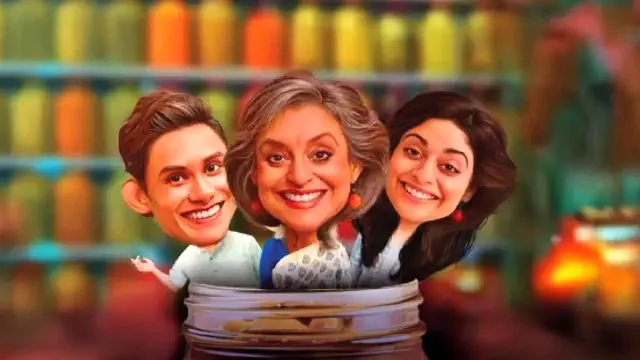
Tanya Maniktala, Ritwik Bhowmik Star In A Dull and Immature Workplace Comedy
Despite a promising cast, the 10-episode show remains frustratingly low on genre humour and feel-goodness.
The Pickle Factory is what happens when The Office (U.S.) and Better Life Foundation (India) reluctantly get married (arranged) and have a pious, Doordarshan-loving child that refuses to grow up. It’s the kind of stagey and adolescent workplace comedy that went out of fashion years ago. You want it to work, of course, for several reasons. The 10-episode show revolves around the quirky employees of a family-run pickle company; imagine the readymade Hindi ‘achaar’ proverbs.
Doctors
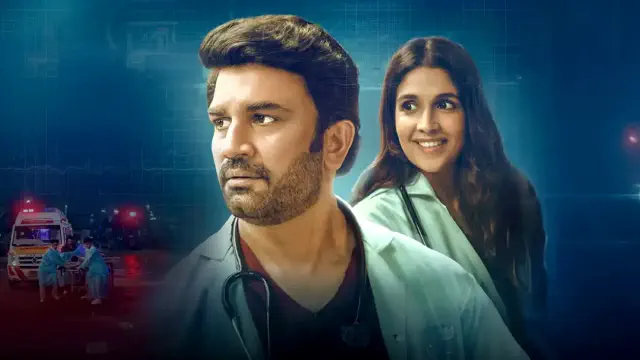
A Medical Drama That Operates on Vibes Alone
Directed by Sahir Raza, the ten-episode series plays out like a tacky college movie set in a hospital.
It often takes no more than five minutes to tell that a ten-episode series is going to be … not good. Yet, it’s my job to watch the whole thing. I can’t just abandon it the moment I realise it’s fundamentally flawed. So, I spend a day or two watching the next 395 minutes, hoping against hope that a miracle changes my mind. But, of course, it never comes—the craft is all wrong, the writing is dated, the music is uninspired, and the acting is everywhere. Yet, when a series is so long and stubborn and voluminous, one tends to develop a strange attachment to it. There’s no escape, so I simply make peace with—and normalise—the mediocrity at hand. It’s a reluctant bond, the kind you have with a month-long cough. But it’s a bond nevertheless, and when it ends, a part of your life ends. That’s what Doctors became to me.
All 2 reviews of Doctors here
Baby John
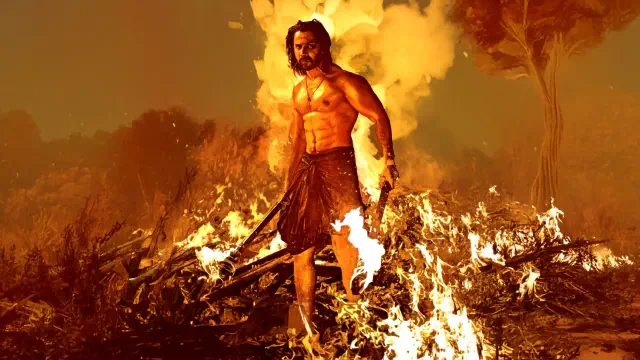
A weapon of mass-movie destruction
Varun Dhawan's remake of Atlee and Vijay’s Tamil film 'Theri' is lewd, rude and painfully crude
Watching a mass actioner is a bit like watching West Indies play T20 cricket. When it comes off, there’s no better sight in sports. It’s all fireworks and fury, natural showmanship and musical rhythm. It makes no sense, yet the joy is real. But when it doesn’t come off, it can look like one giant Steve Smith mishit: ugly, awkward, strange, abnormal. Baby John is an example. Nothing aligns. The timing is woefully off, the star wattage is awry, the sound mix is all over the place, the action is unimaginative, it’s 164 minutes of dated narrative tropes, and the money shots don’t add up. That’s the thing about the genre: it’s boom or bust. It’s high-risk, high-reward, high-everything filmmaking. West Indies either chases down 250 or gets skittled out for 45 — there is seldom an in-between version.